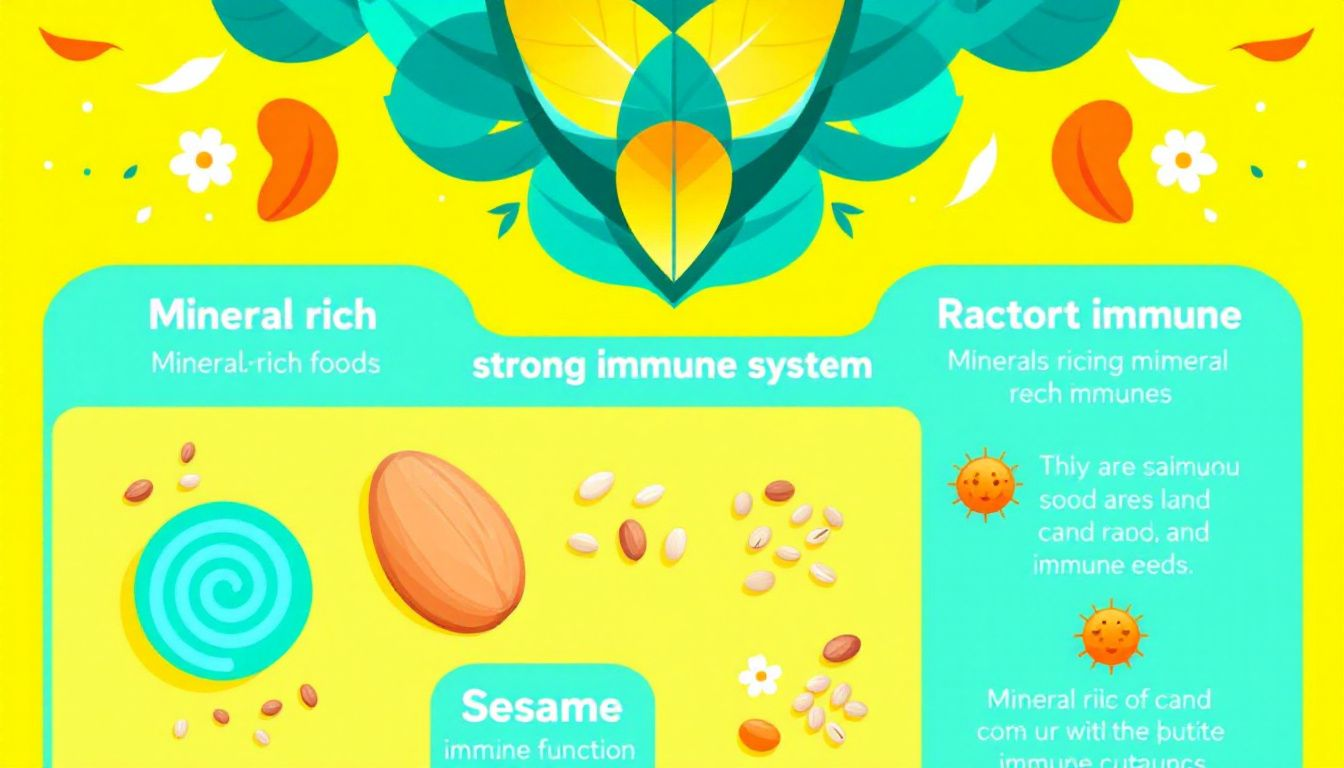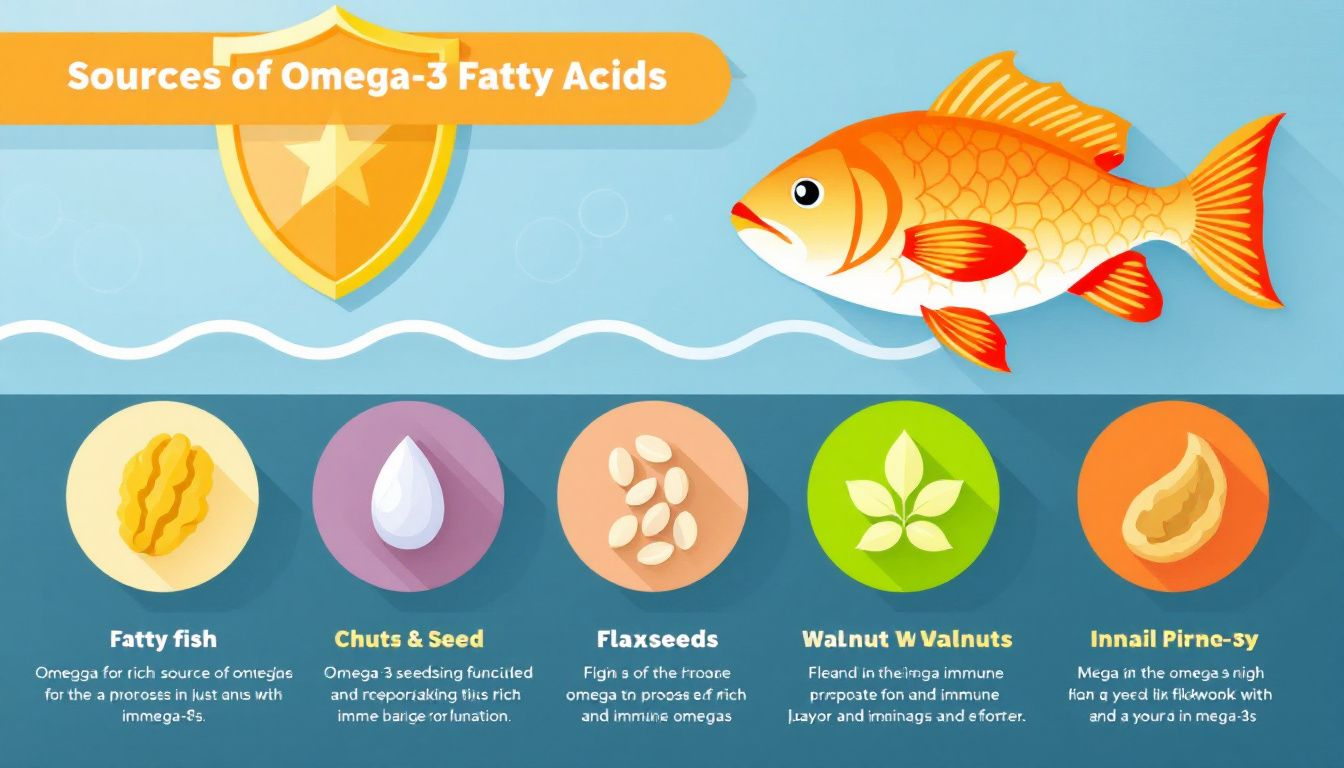Are you curious about the best supplements to boost immunity? A strong immune system is your body's first defense against infection and disease when maintaining good health. However, modern lifestyles often leave most people with nutrient gaps that can weaken immunity and increase susceptibility to cold symptoms and other illnesses. This is where dietary supplements can play a pivotal role. Packed with immune-boosting properties, key nutrients like vitamins C, D, and E and essential mineral supplements like zinc and selenium help your body fight off threats effectively. Combined with immune-enhancing herbs such as echinacea and elderberry, these supplements support your immune response, especially during cold and flu seasons.
But supplements alone aren't a cure-all. To stay at peak performance, it's essential to address lifestyle factors like regular exercise, adequate sleep, and managing stress—all of which enhance your body's ability to utilize these nutrients. Furthermore, eating various plant foods and other foods rich in vitamins and minerals, such as citrus fruits, dairy products, and fermented foods, can amplify the health benefits of immune-boosting supplements. Ready to discover which supplements and habits can help you stay strong, healthy, and prepared to take on whatever comes your way? Keep reading to learn how to support your immunity and promote overall health.
Key Takeaways
- Essential vitamins like C, D, and E and minerals such as zinc and selenium are crucial for a robust immune system.
- Herbal supplements, including echinacea and elderberry, can enhance immune function, especially during cold and flu seasons.
- Lifestyle factors such as regular exercise, adequate sleep, eating whole, non-processed food, and effective stress management significantly enhance the effectiveness of immune-boosting supplements.
Essential Vitamins for Immune Health

Incorporating specific vitamins into your diet helps maintain a strong immune system. Vitamins such as C, D, and E support immune health and ensure your body’s natural defenses are in top shape. These vitamins are essential for a healthy immune response.
Vitamin C is mainly known for its immune-boosting properties. It helps prevent illness and is a powerful antioxidant, protecting your body from harmful toxins. On the other hand, vitamin D enhances T-cell activity and limits viral replication, making it vital for immune health. Vitamin E, too, is essential as it improves immune response and protects against infections.
In the following subsections, we will explore these vitamins in more detail, discussing their specific benefits, sources, and how they contribute to a strong immune system. Understanding the role of these vitamins can help you make informed choices about your dietary supplements and improve your overall immune function.
Vitamin C
Vitamin C is a powerhouse when it comes to boosting the immune system. It acts as an antioxidant, helping to prevent sickness by protecting the body from harmful toxins that can cause inflammation. This essential nutrient is crucial for producing and functioning white blood cells, the body’s primary defense against infections.
You can find vitamin C in various fruits and vegetables, making it relatively easy to include in your diet. Citrus fruits like oranges and grapefruits are well-known sources, but don’t forget about other vitamin C-rich foods such as tomatoes, potatoes, red and green peppers, kiwifruit, broccoli, strawberries, brussels sprouts, and cantaloupe. These foods are delicious and packed with nutrients that support a healthy immune system.
Vitamin C is essential for a strong immune system, yet our bodies do not produce or store it naturally. This means we must consume it regularly through foods rich in vitamin C—like citrus fruits, bell peppers, and Brussels sprouts—or dietary supplements. Adequate intake helps prevent vitamin C deficiency, keeping your immune response functioning at its best.
If you're curious about the best ways to meet your vitamin C needs, our article "Your Guide to the Best Supplement for Vitamin C: Making Sense of Your Options" offers a comprehensive discussion. It highlights the health benefits of vitamin C, explores various supplement types, and reviews five top-rated Vitamin C supplements on Amazon. This guide can save you valuable time by providing expert insights to help you make the right choice for your good health and immunity.
Vitamin D
Vitamin D is another crucial player in maintaining immune health. It supports the immune system by enhancing the activity of T-cells, which are essential for fighting off infectious diseases and limiting viral replication. A recent UC Davis study found that individuals with a vitamin D deficiency were 14 times more likely to experience a severe or critical case of COVID-19, underscoring the importance of maintaining adequate levels. Additionally, those with low vitamin D levels are more susceptible to upper respiratory tract infections like RSV, further emphasizing its role in good health and immunity.
Although vitamin D is the only vitamin the body can produce naturally, it requires abundant sunlight for synthesis. This can become a challenge during the shorter, darker winter days, leading to decreased production and an increased risk of deficiency. During flu season and other periods of low sunlight, dietary supplements can help fill the gap. Popular food sources of vitamin D include fatty fish like salmon and mackerel, beef liver, cheese, egg yolks, and fortified dairy products such as milk and cereals. There are two forms of vitamin D: vitamin D2 and vitamin D3, both of which contribute to immune response and overall health. Notably, the most popular supplement form combines D3 and K2, as these two nutrients work synergistically to support immune cells and bone health.
Given the vital role of vitamin D in helping your body fight off infections and illnesses, it's worth consulting a registered dietitian to determine if supplementation is proper for you—especially during the colder months when your natural sunlight exposure is reduced. Supplements can help ensure your immune system stays resilient and ready to face challenges year-round.
Vitamin E
Vitamin E is another essential nutrient that supports immune health. As a powerful antioxidant, vitamin E helps protect cells from damage and enhances immune response by boosting T-cell performance. This is particularly important for maintaining a strong immune system and protecting the body against infections.
Foods high in vitamin E include nuts and seeds, such as almonds, sunflower seeds, and hazelnuts, which are safe and beneficial for consumption. Incorporating these foods into your diet can help ensure you receive an adequate amount of this vital nutrient.
Research has looked into how vitamin E supplementation may impact the risk and severity of respiratory tract infections. However, findings have been inconsistent, leading researchers to explore the different forms of this essential vitamin in more depth. Many people are unaware that vitamin E exists in multiple forms, each with unique immune-boosting properties and potential health effects. If you’re curious about which type of vitamin E is the most beneficial, our article Discovering Which Form of Vitamin E Is Most Active for Optimal Health Benefits offers an in-depth look at the distinctions between tocopherols and tocotrienols. Understanding these variations can help you make an informed choice when selecting dietary supplements to support your immune system and overall health.
For those looking to go a step further and explore the most effective form of vitamin E, Shattering the Vitamin E Stereotype: A Journey into the World of the Best Tocotrienol Supplements is an excellent resource. This guide reviews five top tocotrienol supplements available today and explains why tocotrienols may offer superior immune-boosting properties compared to traditional tocopherols. Whether you aim to enhance your immune response, support good health, or simply make the best choice for supplements, these articles can help you confidently navigate the world of vitamin E. The bottom line is maintaining sufficient levels of vitamin E through diet or vitamin E supplements supports your immune system and overall health.
Key Minerals for Strong Immunity

While vitamins are essential for immune health, key minerals also significantly support a strong immune system. Minerals such as zinc and selenium are crucial for maintaining optimal immune function and ensuring your body’s natural defenses are adequate.
Deficiencies in minerals like zinc, selenium, iron, and copper can alter cellular immune responses and increase infection susceptibility. Therefore, it’s crucial to maintain a balanced intake of these essential minerals through diet or mineral supplements to support immune health.
Next, we delve into the roles of zinc and selenium and their benefits, sources, and contributions to a robust immune system.
Zinc
Zinc is an essential mineral that plays a crucial role in immune function. It is necessary to produce new immune cells, which helps prevent impaired lymphocyte formation, reduce T-cell ratios, and increase susceptibility to infections. In other words, zinc is vital for a healthy immune system.
Zinc can be found in various foods. Some sources include oysters, crab, lobster, beef, pork, poultry, beans, nuts, whole grains, and dairy products. These foods are rich in zinc and can help ensure you receive an adequate amount of this essential mineral.
Supplements like lozenges or syrups are available for those who may not get enough zinc from their diet. These supplements can help boost your zinc intake and support your immune function.
Selenium
Selenium is another essential mineral that supports immune health. It plays a critical role in activating the immune system and regulating its response, helping to prevent chronic inflammation and maintain a healthy immune response.
You can find high amounts of selenium in Brazil nuts, certain meats, and seafood. Including these foods in your diet can help ensure you receive adequate selenium, supporting your immune function and overall health.
Adequate selenium levels are essential for a strong immune system. A deficiency in this mineral can compromise your body’s ability to fight infections and illnesses.
For those looking for a convenient way to ensure adequate intake of both zinc and selenium, a combination supplement can be a great option. Our article, The Health Enthusiast's Dream: Five Of The Best Zinc Selenium Supplements You Need to Know, introduces five of the top zinc selenium supplements available today. These dietary supplements offer a simple and effective way to support immune function by providing both essential minerals in one capsule. If you want to enhance your immune response, prevent deficiencies, and maintain good health, this guide can help you find the right supplement to fit your needs.
Herbal Supplements with Immune-Boosting Properties

In addition to vitamins and minerals, herbal supplements can provide powerful immune-boosting properties. Herbs like ginseng tea, echinacea, elderberry, and andrographis have been studied for their potential benefits in supporting immune health.
These herbal supplements are often considered for their ability to enhance immune function and provide support during cold and flu seasons. They can be a valuable addition to your wellness routine, helping to boost your body’s natural defenses and improve immune function.
Next, we’ll explore the benefits of echinacea, elderberry, andrographis, their immune-boosting properties, and how they can help you stay healthy.
Echinacea
Echinacea is a popular herbal supplement known for its immune-boosting properties. Research suggests that echinacea may reduce the risk of developing a cold by 22%, making it a valuable addition to your wellness routine, especially during the cold and flu season.
Echinacea supplements include E. purpurea, E. angustifolia, and E. pallida. These species are believed to enhance the immune system and support overall health.
However, it’s important to note that echinacea does not shorten the duration or severity of illness. While it can help reduce the risk of getting sick, it may not provide relief if you already have a cold or flu.
Choosing the right supplement can make all the difference if you consider adding echinacea to your routine. Our article, Top Picks for the Best Echinacea Supplement: Immune Boosting Solutions That Work, reviews five of the top echinacea supplements available on Amazon. This guide breaks down each product's different formulations, key ingredients, and immune-boosting properties, helping you find the best option for your needs. With so many choices on the market, this article can save you valuable time while ensuring you select a high-quality supplement to support your immune system and overall health.
Elderberry
Elderberry is another herbal supplement with immune-boosting properties. Known for its rich nutritional profile, elderberry has demonstrated anti-inflammatory effects and may help reduce swelling and pain.
Many people use elderberry syrup as a natural remedy during the cold and flu season to alleviate symptoms. Its immune-boosting properties make it a popular choice for those looking to support their immune health naturally.
Andrographis
Andrographis paniculata is a medicinal herb renowned for its potential health benefits, particularly in supporting immune function. Traditionally used in Ayurvedic medicine to treat respiratory infections, Andrographis has a long history of being a reliable remedy for such conditions.
Research indicates that Andrographis possesses immune-boosting properties, enhancing the body’s natural defenses against infections. Studies have shown that it can reduce the duration and severity of colds and respiratory diseases, validating its use in traditional medicine.
Including Andrographis in your regimen can be a proactive step toward maintaining a strong immune system.
Probiotics for Immune Support
Probiotics, often called “good bacteria,” are crucial in enhancing immune function. These beneficial bacteria stimulate the immune system and secrete antimicrobial substances, helping to maintain a healthy balance of gut bacteria. The health of your gut microbiome is directly linked to your immune health.
Certain probiotic strains are particularly effective in reducing infections. For instance, Lactobacillus rhamnosus GG has demonstrated effectiveness in clinical trials, reducing the incidence of diarrhea among infants. Similarly, Saccharomyces boulardii effectively manages symptoms and promotes faster recovery from diarrhea in children.
We’ll now explore the benefits of fermented foods and popular probiotic strains and how they support your immune system.
Benefits of Fermented Foods
Fermented foods such as yogurt, sauerkraut, and kimchi are rich in probiotics that promote a healthy gut microbiome, which is essential for immune health. Consuming these foods can enhance the balance of gut bacteria, thus improving immune function.
Research supports the health benefits of probiotics found in fermented foods. A 2014 Cochrane Review found that probiotics decreased the incidence of ventilator-associated pneumonia by 30%. Moreover, a 2022 meta-analysis indicated that probiotics reduced the length of ICU stays by an average of 2.2 days, highlighting their potential benefits for health outcomes.
Adding fermented foods to your diet is a natural, effective way to boost your immune system and support your body’s natural defenses.
Popular Probiotic Strains
Specific probiotic strains, such as Lactobacillus and Bifidobacterium, are recognized for boosting immune function and combating infections. These strains are particularly effective in reducing respiratory infections in children.
Probiotics play a significant role in enhancing immune health by supporting the body’s natural defenses. Including probiotic-rich foods or supplements in your diet can help maintain a balanced gut microbiome and strengthen your immune response.
Incorporating these popular probiotic strains can be a proactive step towards improving your immune function and overall health.
Omega-3 Fatty Acids and Immune Function

Omega-3 fatty acids, primarily found in fish oil, support the immune system. These fatty acids influence innate and adaptive immune responses through various mechanisms, helping modulate inflammation and immune responses.
Research indicates that omega-3 fatty acids can contribute to a decrease in inflammatory diseases, making them beneficial for managing conditions characterized by chronic inflammation. By reducing inflammation, omega-3s support a healthy immune response and overall immune function.
Next, we will explore various sources of omega-3's and how to incorporate these essential fatty acids into your diet.
Sources of Omega-3s
Primary sources of omega-3 fatty acids include cold-water fish like salmon, mackerel, and sardines. These fish are rich in omega-3s and can be easily incorporated into your diet. For those who prefer plant-based options, chia seeds, flaxseeds, and walnuts are excellent sources of omega-3 fatty acids.
Additionally, certain fortified foods, such as yogurt and eggs, are enriched with omega-3 fatty acids, providing convenient dietary options. A varied diet, including these foods, ensures adequate omega-3 intake, supporting immune function and overall health.
For those following a vegetarian or vegan lifestyle, finding a high-quality omega-3 supplement that isn’t derived from fish can be a challenge. Our article, From Algae to Awesomeness: Five of The Best Vegan Omega-3 Supplements You Need to Know, introduces five of the best vegan omega-3 supplements. Unlike plant foods like chia seeds and flaxseeds, which contain ALA (a form of omega-3 that requires conversion in the body), algae-based omega-3 supplements provide DHA and EPA in a readily available form. If you're looking for a plant-based alternative to support immune health and overall health, this guide can help you make an informed choice.
Whether from fatty fish, plant-based options, or fortified foods, omega-3 fatty acids are essential for a healthy immune system.
Lifestyle Factors to Enhance Supplement Effectiveness
While dietary supplements can significantly improve immune function, lifestyle factors can enhance effectiveness. A balanced diet rich in essential minerals, regular exercise, adequate sleep, and effective stress management are key practices that support a healthy immune system.
Processed foods and high simple sugar intake can adversely affect immune function, making it essential to prioritize healthy eating habits. Additionally, chronic intake of certain supplements, such as zinc and selenium, should be monitored to avoid potential adverse effects.
Next, we’ll explore how regular exercise, adequate sleep, and managing stress can enhance supplement effectiveness and support immune health.
Regular Exercise
Regular exercise plays a crucial role in supporting immune function. Physical activity contributes to overall health and well-being and boosts immune function, enhancing the body’s ability to fend off illnesses.
Regular exercise is fundamental for maintaining overall wellness and improving immune health. Regular physical activity can support a strong immune system and improve your body’s natural defenses.
Regular exercise is a powerful tool for boosting your immune function and staying healthy, whether it’s a daily walk, a yoga session, or a workout at the gym.
Adequate Sleep
Adequate sleep is vital for a healthy immune system. Sleep is critical in how the immune system responds to pathogens, making it essential for immune health. Getting enough sleep can enhance the body’s natural defenses, helping to prevent infections and illnesses.
Overall health is significantly influenced by the quality and quantity of sleep a person gets, highlighting the importance of prioritizing good sleep habits. By ensuring you get adequate sleep each night, you can support your immune function and overall well-being.
Managing Stress
Effective stress management is crucial for a healthy immune system. Chronic stress can negatively impact immune health, making it essential to adopt strategies for effective stress management.
Hand washing, covering coughs and sneezes, staying hydrated, maintaining a good diet, and ensuring adequate rest are all effective ways to manage stress and keep your immune system strong. Additionally, these practices can help mitigate the effects of flu symptoms and support overall health.
By managing stress effectively, you can boost your immune function and improve your overall health.
Wrapping Up Our Discussion
Maintaining a strong immune system has never been more critical in a world where new respiratory viruses emerge yearly. As people search for answers, many turn to dietary supplements, vitamins, and essential minerals to reinforce their body’s first defense against infection. A well-rounded approach to boosting the immune system goes beyond a single solution—it requires a thoughtful balance of nutrients, lifestyle choices, and immune-boosting properties that work together to keep you healthy and resilient.
Key vitamins like C, D, and E provide foundational support by strengthening immune cells and enhancing immune response. Mineral supplements, such as zinc and selenium, help the body fight against cold symptoms and flu season while reducing the risk of deficiency-related illness. Beyond these nutrients, herbal solutions like echinacea and elderberry offer additional immune-boosting properties. At the same time, probiotics from fermented foods help maintain a healthy balance of bacteria that support digestion and immunity. Even omega-3 fatty acids in cold-water fish, beef liver, and plant foods like chia seeds contribute to peak performance by modulating inflammation and supporting T-cells.
However, supplementation alone isn't enough. A holistic approach to good health means integrating lifestyle habits like regular exercise, adequate sleep, managing stress, and proper water intake into your daily routine. Poor body weight management, inadequate nutrition, and increased risk factors like chronic stress and health conditions can weaken your immune response, making it even more crucial to prioritize your overall health through a combination of foods rich in nutrients and targeted supplements.
As new challenges arise, knowledge and preparation empower us to take control of our immunity. Whether through natural foods, high-quality dietary supplements, or evidence-backed wellness practices, making informed choices today can support a healthier future. By embracing a comprehensive approach, you can boost the immune system, strengthen your body’s defenses, and confidently navigate every cold season and flu season ahead.
Brief Answers to FAQs
What vitamin helps you not get sick?
Vitamin C is essential for boosting your immune system and helps protect against infection. Ensuring adequate intake of this vitamin can significantly reduce your chances of getting sick.
Can supplements boost your immune system?
Supplements alone cannot boost your immune system significantly; a balanced diet, adequate sleep, regular exercise, and vaccinations are key to maintaining a well-functioning immune system. Prioritizing these lifestyle factors is the most effective approach.
What are the best vitamins for boosting immunity?
Vitamins C, D, and E are crucial for boosting immunity, as they enhance immune function and help protect against infections. Incorporating these vitamins into your diet can strengthen your body's natural defenses.
How do probiotics support immune health?
Probiotics support immune health by promoting a healthy gut microbiome, stimulating the immune system, and secreting antimicrobial substances. This balance is crucial for maintaining overall immune function.
What are the benefits of omega-3 fatty acids for immunity?
Omega-3 fatty acids significantly enhance immunity by modulating inflammation and supporting immune responses, managing chronic inflammatory conditions, and reducing the risk of inflammatory diseases.
Thanks for taking this journey to explore the best supplements to Boost Immunity. If you want to add to your library of knowledge and are interested in exploring some of the supplements mentioned in this article, you should check out the links above. It could be a huge time-saver - you won't be sorry you took a look.
Also, please return soon to check out our next review of other incredible supplements – we’re always looking out for YOU!
*We are NOT qualified medical advisors. The content here is only based on our personal opinions and research and should NOT be used as a substitute for a healthcare professional's advice!











Member discussion